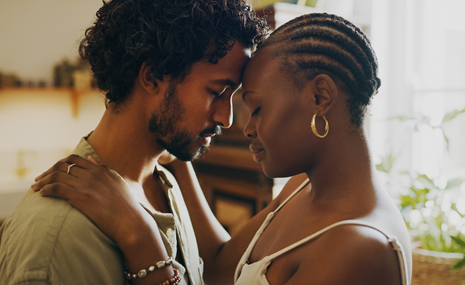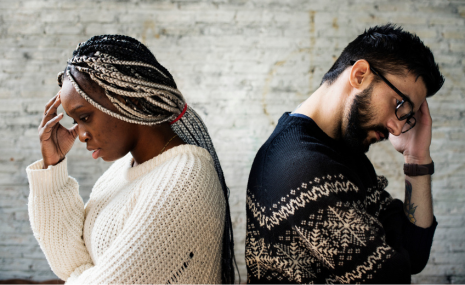Does Interracial Adoption Create 'Extra Layer of Identity Problems'?
 BBC presenter and host of the ITV show 'Long Lost Family', Nicky Campell who was adopted when he was 4-days old no longer believes “love is love, whatever colour or race the adoptive parents are”. He told the Radio Times that adopted children already have identity crisis even when adopted by parents from the same race because of the differences they might have with their adoptive parents. He feels interracial adoption adds an "extra layer of identity problems” for children.
BBC presenter and host of the ITV show 'Long Lost Family', Nicky Campell who was adopted when he was 4-days old no longer believes “love is love, whatever colour or race the adoptive parents are”. He told the Radio Times that adopted children already have identity crisis even when adopted by parents from the same race because of the differences they might have with their adoptive parents. He feels interracial adoption adds an "extra layer of identity problems” for children.
This came after changes were made to the law that makes interracial adoption easier.
Find your soulmate on LatinoLicious










Campbell who is the patron of the British Association for Adoption and Fostering told Radio times:
"Since I went into working with adoption charities, I have changed my view of interracial adoption: originally, I used to think love is love, whatever colour or race the adoptive parents are.
... when you’re adopted, there is a lot of identity crisis anyway. I had a big identity crisis because I had blue eyes and no one else in my family had blue eyes. So if you are adopted, plus you come from a different culture, plus you look completely different, it’s like a triple whammy.
There are situations where that doesn’t matter, but in the long term it’s an extra layer of identity problems.”
The thing with adoption is it helps give these children loving homes. But does it present complex issues in the long run when the children are placed in the care of parents from different races? Should we be completely color blind to interracial adoption?
To quote a story in an article on the Guardian from a few years ago about Asian children adopted in the UK about 50 years ago:
She remembers the isolation, the confusion, the racism, the passers-by who gawped at her because she looked different from her parents. Sue Jardine, 50, said she felt neither Chinese nor British, "a bloody foreigner" in a country that didn't understand her.
"My obvious difference to my family attracted unwanted attention and racist comments that I felt my parents did not understand or want to acknowledge," she said
In the article, Claire Martin also added:
"I would not like the government to say that love is the most important thing. I just don't believe that's the case. There are enough of the women who have had really bad experiences even where people have genuinely loved them… They can give food, shelter and all that stuff, but when it gets to the higher end of people's needs like confirming their identity, self-image, they haven't been able to fulfill that. It's really important the adoption process takes this into account and doesn't sweep race under the carpet."
Well Campbell seems to share similar sentiments saying, race “does matter, and it’s complicated”. He added: “I used to think that love unequivocally was love and it didn’t matter and I now know that it does.” However, he feels more ethnic minorities should come forward and adopt.
That said, should interracial adoption be discouraged? What do you think?
1 responses to "Does Interracial Adoption Create 'Extra Layer of Identity Problems'?"
Leave a reply
You must be logged in to post a comment.


















































As an 'interracial' adoptee myself (I put this in quotes because I'm only 25% black and grew up from infancy with my white adoptive parents), I have to say that the idea of identity issues is ridiculous. Identity is the sole responsibility of the individual; if you are (x) and grew up (y), then you are who you decide you are. Yes, I do understand and acknowledge that it's not going to fly for a fully black adoptee to call themselves a white person, but they should be allowed to identify culturally as such **IF THAT IS YHE ONLY CULTURE THEY HAVE KNOWN**. Likewise you cannot logically expect a mixed (here I mean blk/white, as they are, sadly, most likely to end up surrendered) interracial adoptee to identify as black if they've not grown up in the culture. All told, I think the debate is passive-aggressive race baiting, since it creates conflict (review Erickson's / Maslow's theories on identity and see how often they reference 'race' as opposed to 'culture') where none should logically exist.